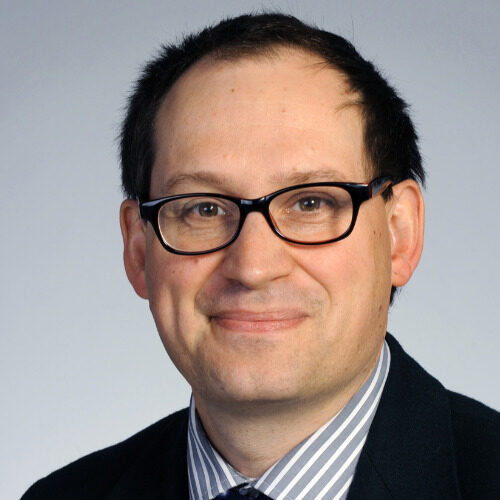
Michael Thomas Leonce Pace-Sigge
University Lecturer
Dr Michael T.L. Pace-Sigge, Senior Lecturer; Department of English Language and Culture Resear...
School of Humanities, Philosophical Faculty
[email protected] | +358 50 442 3473
BA Joint Hons English and German 1997; MA Directed Research, Lenition in Scouse voiceless plosives, 2003; PhD, Lexical Priming in Spoken English, 2010 (University of Liverpool).
‘Assessment of scientific proposals expert’, for ANEP (the Ministry of Science, Spain). Assistant editor of Journal of Corpus-Assisted Discourse Studies (JCADS).
https://orcid.org/0000-0002-5164-5242
Michael Pace-Sigge initially worked as university teacher at the University of Liverpool, UK from 2005 – 2012 and as university teacher at Liverpool Hope University 2007-08. In 2012 he was appointed Senior Lecturer at the University of Eastern Finland, where he continues to teach and do research. Beyond that, he has taught during Erasmus exchanges in Estonia, Italy, Lithuania, Spain, and Ukraine. Starting with an interest in Scouse (the accent of Liverpool) he moved from a phonetics MA to a corpus linguistics PhD. His particular interest lies in the Lexical Priming Theory (as can be seen by his 2013 and 2017 books). He also keeps finding further applications for corpus linguistics (as the 2015, 2018 and 2020 books attest). Of late, his interest has shifted to language applications in AI and Paul Hopper’s Emergent Grammar research.
Main publisher: Palgrave Macmillan. Also published with John Benjamins and Elsevier.
Link to the Pathways to Textuality, symposium in Honour of Michael Hoey Symposium: https://sites.uef.fi/pathwaystotextualitysymposium/
Select bibliography:
- Linked Noun Groups. Opposition and Expansion as Genre and Style Markers. 2020. Abingdon: Palgrave Macmillan.
- Spreading Activation, Lexical Priming and the Semantic Web. 2018. Abingdon: Palgrave Macmillan.
- Lexical Priming – Applications and Advances. 2017. Co-edited with K. J. Patterson Amsterdam: John Benjamins.
- Murphy, S., Culpeper, J., Gillings, M., & Pace-Sigge, M. 2020. What do students find difficult when they read Shakespeare? Problems and solutions. Language and Literature, 29(3), 302-326.
- A case study on some frequent concepts in works of poetry. 2019. Journal of Research Design and Statistics in Linguistics and Communication Science Vol. 5.1, pp. 122-151.
Teaching
Sounds of English 2130353-3001
British Studies 2130359-3001
Shakespeare as an Icon 2130447-3001
Discourse Analysis and Pragmatics 2130572-3001
Files
1 itemsPublications
24/24 items-
Corpus Analysis of Lexical Priming
Pace-Sigge, Michael, 2025, Chapelle, Carol A, The Encyclopedia of Applied Linguistics. A3 Book section, Chapters in research books -
Large-Language-Model Tools and the Theory of Lexical Priming: Convergence and Divergence of Concepts of Language
Pace-Sigge, Michael, 2025, 1-13. A4 Conference proceedings -
Large-Language-Model Tools and the Theory of Lexical Priming: where technology and human cognition meet and diverge
Pace-Sigge, M, 2025, Journal of corpora and discourse studies, 9, 1-22. A1 Journal article (refereed), original research -
Deborah, Linguist yet Professor Michael. How British corpora reflect gender relations through forms of address
Pace-Sigge, Michael T L, 2024, Jiménez-Navarro, Eva Lucía; Martínez Serrano, Leonor María, Where Gender and Corpora Meet: New Insights into Discourse Analysis, 109-133. A3 Book section, Chapters in research books -
Forced Lexical Primings as Evidence of Power Relations in Jihadist Magazines
Pace-Sigge, Michael TL, 2024, Patterson, Katie Jane; Hidalgo-Tenorio, Encarnación, Multidisciplinary Approaches to the Discourses of Extremism, 192-214. A3 Book section, Chapters in research books -
Presence and Absence of Laughter and Gestures. Examples from the BNC-Spoken 2014 and Dickens’ Novels
Pace-Sigge, Michael Thomas, 2024, Journal of corpora and discourse studies, 7, 233-257. A1 Journal article (refereed), original research -
Approaches to the discourse of terror: How power relations are represented through forced primings in jihadist magazines
Patterson, Katie J; Pace-Sigge, Michael T L, 2022, Pragmatics and society, 13, 3, 404-430. A1 Journal article (refereed), original research -
What Teaching an Algorithm Teaches When Teaching Students How to Write Academic Texts
Pace-Sigge, Michael; Sumakul, Toar , 2022, Jantunen, Jarmo Harri; Kalja-Voima, Johanna; Laukkarinen, Matti; Puupponen, Anna; Salonen, Margareta; Saresma, Tuija; Tarvainen, Jenny; Ylönen, Sabine, Diversity of Methods and Materials in Digital Human Sciences: Proceedings of the Digital Research Data and Human Sciences Conference 2022, December 1-3, Jyväskylä, Finland, 230-243. A4 Conference proceedings -
Topic-targeted academic writing: creating and using a template corpus in class -insights from past practise
Pace-Sigge, Michael, 2021. Abstract -
Digitality in humanities: How language teachers can shape human-centered artificial intelligence
Pace-Sigge, Michael; Sumakul, Toar, 2020. I1 Audiovisual material
